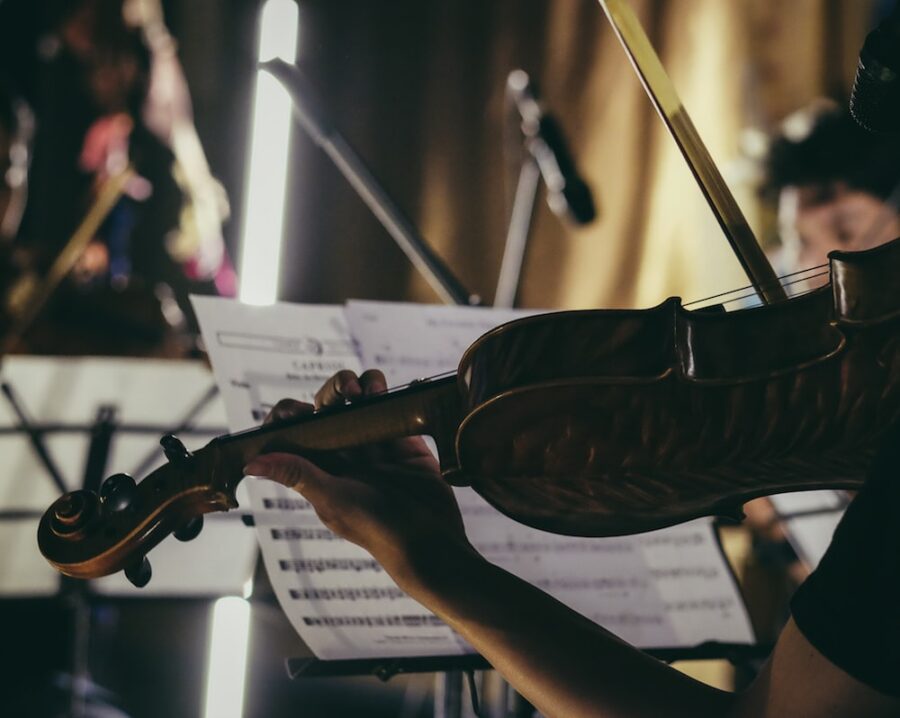How Playing a Instrument Affects Human Development
Music has been a part of human life since prehistoric times, with archaeological discoveries providing evidence of primitive instruments in use by early humans. Playing a musical instrument can have positive psychological and physical benefits. But what do we know about the way it affects our development? In this article, we’ll explore how playing a musical instrument affects our development. So, let’s begin!
The Different Stages of Development
Playing a musical instrument has been shown to have a positive effect on our development. Researchers have found that there are different stages of development that are associated with playing a musical instrument.
The first stage of development is the cognitive stage. This is when the child is learning to identify the different sounds that they are hearing. They are also learning to match the sounds with the correct action. For example, they will learn to hit the drum when they hear the sound of a drum.
The second stage of development is the motor stage. This is when the child starts to be able to control their movements in order to create the desired sound. For example, they will learn how to use their fingers to pluck the strings of a guitar.
The third stage of development is the social stage. This is when the child starts to interact with other people while playing music. They will learn how to take turns and cooperate with others in order to create a cohesive sound.
The fourth and final stage of development is the emotional stage. This is when the child starts to express themselves through their music. They will experiment with different sounds and rhythms in order to find what makes them feel good. Playing music can be a way for them to express their emotions and connect with others who are doing the same thing.

The Impact of Music on Emotional Development
Most of us are aware of the power of music to affect our moods. We’ve all had the experience of having a song “stuck in our head” that we can’t get out, no matter how hard we try. And many of us have used music to change our mood, whether it’s to pump ourselves up for a workout or to wind down after a long day.
But what you may not know is that music can also have a profound effect on emotional development, particularly in children and adolescents. Studies have shown that playing a musical instrument can help kids better understand and express their emotions, deal with anxiety and stress, and develop empathy for others.
For example, one study found that children who took piano lessons showed increased self-esteem and confidence, as well as improved social skills. Another study found that teenagers who played in a school band had lower levels of anxiety and depression than those who didn’t play an instrument.
The Impact of Music on Cognitive Development
It is no secret that music has the ability to affect our emotions. But did you know that music can also impact our cognitive development? Studies have shown that playing a musical instrument can improve our memory, focus, and problem-solving skills. Let’s take a look at how playing a musical instrument affects our development.
Playing a musical instrument requires the use of both hemispheres of the brain. This increased activity in the brain can lead to improved academic performance. In one study, students who participated in weekly piano lessons showed improved reading and math scores on standardized tests when compared to their non-musical peers.
In addition to impacting academic performance, playing a musical instrument can also improve memory and focus. One study found that musicians had better verbal memory and working memory than non-musicians. Another study found that musicians were better able to focus on tasks and filter out distractions compared to non-musicians.
Finally, playing a musical instrument can also improve problem-solving skills. One study found that musicians were better able to come up with creative solutions to problems when compared to non-musicians. Musicians are also better able to generate new ideas, something that is essential for innovation.

The Impact of Music on Social Development
When it comes to social development, music can have a profound effect. It can help us to better understand and relate to others, express ourselves in creative ways, and develop important life skills.
Music has the ability to foster empathy and understanding. Listening to music can help us to see things from another person’s perspective and understand their emotions. This is an important skill that can be beneficial in all areas of life, from our personal relationships to our professional interactions.
Expressing ourselves through music can also be a powerful tool for personal growth. Playing an instrument or singing allows us to tap into our emotions and express them in a creative way. This can be particularly helpful if we’re struggling to communicate how we feel verbally. Music can also be a great form of self-care, helping us to relax and de-stress.
Finally, learning to play an instrument or sing requires dedication and practice – two important life skills that can be transferred to other areas of our lives. Developing these skills can help us to set goals, stay motivated, and persevere through challenges.
The Benefits of Playing a Musical Instrument
There are many benefits of playing a musical instrument. One benefit is that it can help with our development. Playing a musical instrument can improve our coordination, memory, and cognitive skills. It can also help us to express our emotions and relieve stress. Additionally, playing a musical instrument can boost our self-confidence and increase our social interaction.

How to Choose the Right Instrument for Your Child
1. Consider your child’s interests and abilities. If your child is interested in a particular type of music, they may be more likely to enjoy learning an instrument that is commonly used in that genre. For example, if your child loves country music, they might enjoy playing the guitar or banjo. Similarly, if your child is good at athletics, they might excel at playing an instrument that requires physical coordination, like the drums.
2. Talk to your child’s teacher. If you’re not sure what type of instrument would be best for your child, talk to their teacher or another musical professional. They may be able to give you some insights based on their experience working with children.
3. Try out different instruments. Once you’ve narrowed down a few options, encourage your child to try out each of the instruments before making a decision. Many music stores offer rental programs where you can rent an instrument for a period of time before committing to purchase it. This can be a great way for your child to get a feel for an instrument before deciding if it’s the right one for them.
Conclusion
Playing a musical instrument can have profound positive effects on our development. It can improve our mental, physical and emotional abilities, while also allowing us to build confidence and self-discipline. Not only is playing a musical instrument an enjoyable way to pass the time but it is also beneficial to our overall well-being in many ways. Thank you for reading, and feel free to continue doing it!
